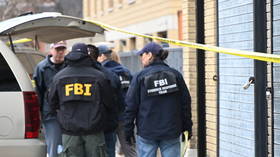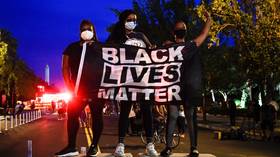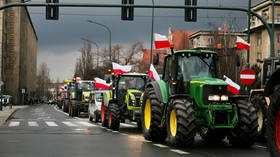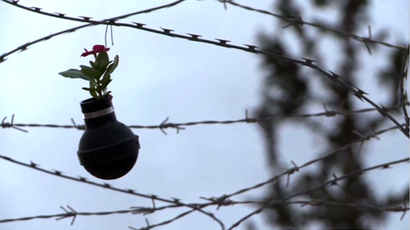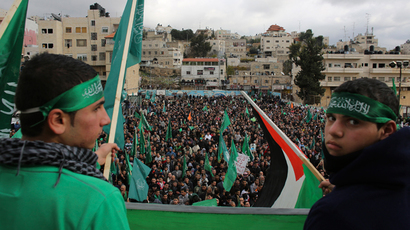IDF keeps secret record of Palestinian olive groves attacks
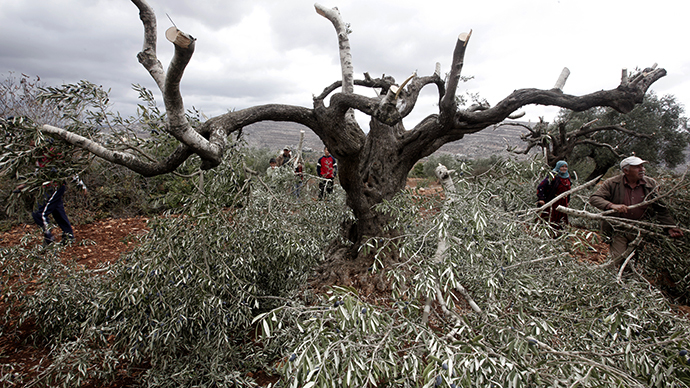
Palestinian olive groves are routinely attacked in territories under Israeli control, according to an IDF confidential document. Human rights groups slam the army for failure to prevent the incidents, which are seriously damaging the Palestinian economy.
The document obtained by Haaretz is a list of 16 attacks carried
out between September 11 and October 20 this year. The vandalized
and destroyed Palestinian olive groves are situated near Israeli
settlements and are officially under IDF guard.
The most serious incident is highlighted first in the list and
concerns burning down 500 trees in the village of Deir al-Khatab.
The latest attack, on September 20, was not actually on the
trees, but on the farmers harvesting olives. This has the most
detailed description, because two of the four injured in the
attack were volunteers from Rabbis for Human Rights, an Israeli
watchdog, which keeps a record of olive grove vandalization and
sends its members to hotspots of violence to help prevent it.
The Rabbis for Human Right volunteers injured in the attack are
aged 71 and 18. The attackers were reportedly Jewish Israelis
from a settlement nearby, who used metal bars and stones against
the farmers.
The president of Rabbis for Human Rights, Rabbi Arik Ascherman,
believes the attack could have been prevented.
“What is surprising to us is that masked men succeeded in
coming the not insignificant distance from Yitzhar to attack,
when the IDF knew that the olive harvest was taking place, knew
that the area is notorious for violence, and that farmers and our
volunteers were attacked at the same place last week,”
Ascherman said, as cited by the group’s official website.
According to the watchdog, some 1,650 trees have been vandalized in the past two months in the West Bank with most of the damage occurring in October.
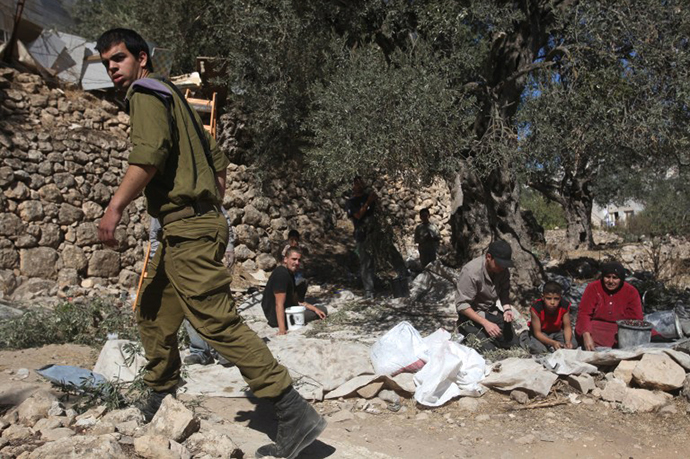
The attacks on the olive groves are a significant blow to the
Palestinians who are dependent on the olive industry, which
provides income and employment to some 100,000 households, as
estimated by another Israeli human rights group, Yesh Din. The
watchdog issued a report on October 21, suggesting Israeli police
failed to investigate incidents involving damage and destruction
of olive trees.
Yesh Din gathered its data from 2005 through to June 2013 in the
Samaria and Judea District. Out of the 211 investigative files
opened by the local police, only four ended in indictments,
according to the group’s findings.
“183 files were closed in circumstances testifying to
investigative failure – no less than 94.7 percent,” the
report reads.
The survey suggests that it’s part of a general trend of police
failure to investigate offenses by Israelis against Palestinians
and their property. For the Samaria and Judea District
Police, the figure stands at 84 percent.
“As the statistics show… the areas of friction are well
known,” says Noah Cohen of Yesh Din’s Research Department,
according to the group’s official website. “Nevertheless the
IDF leaves the Palestinian residents in these areas exposed to
repeated violent attacks. The implication of the ongoing failure
of the S&J District Police to investigate and prosecute
persons who vandalize trees is equally apparent: The complete
abnegation of responsibility and the abandonment of these areas
to the control of violent and extremist elements.”
Both the watchdogs – Rabbis for Human Rights and Yesh Din – sent
a letter to the commanders of the IDF brigades in the West Bank,
listing the incidents of olive trees vandalization and accusing
the army of failing to protect the Palestinian farmers and their
property.
Israeli settlements in the territories the country captured in
the 1967 Middle East war have long been hotbeds of clashes
between Israelis and Palestinians, as well as a major obstacle
for peace talks between the two sides.
Although most countries view the Israeli settlement activity as
illegal, the country is far from ready to give them up. Just this
Wednesday, Israel's Interior Ministry announced 1,500 housing
units would be built in East Jerusalem.
The move comes a day after Israel released 26 Palestinian
prisoners as part of a deal brokered by the US to put the peace
process back on track. The new settlements program puts it at
risk once again.



